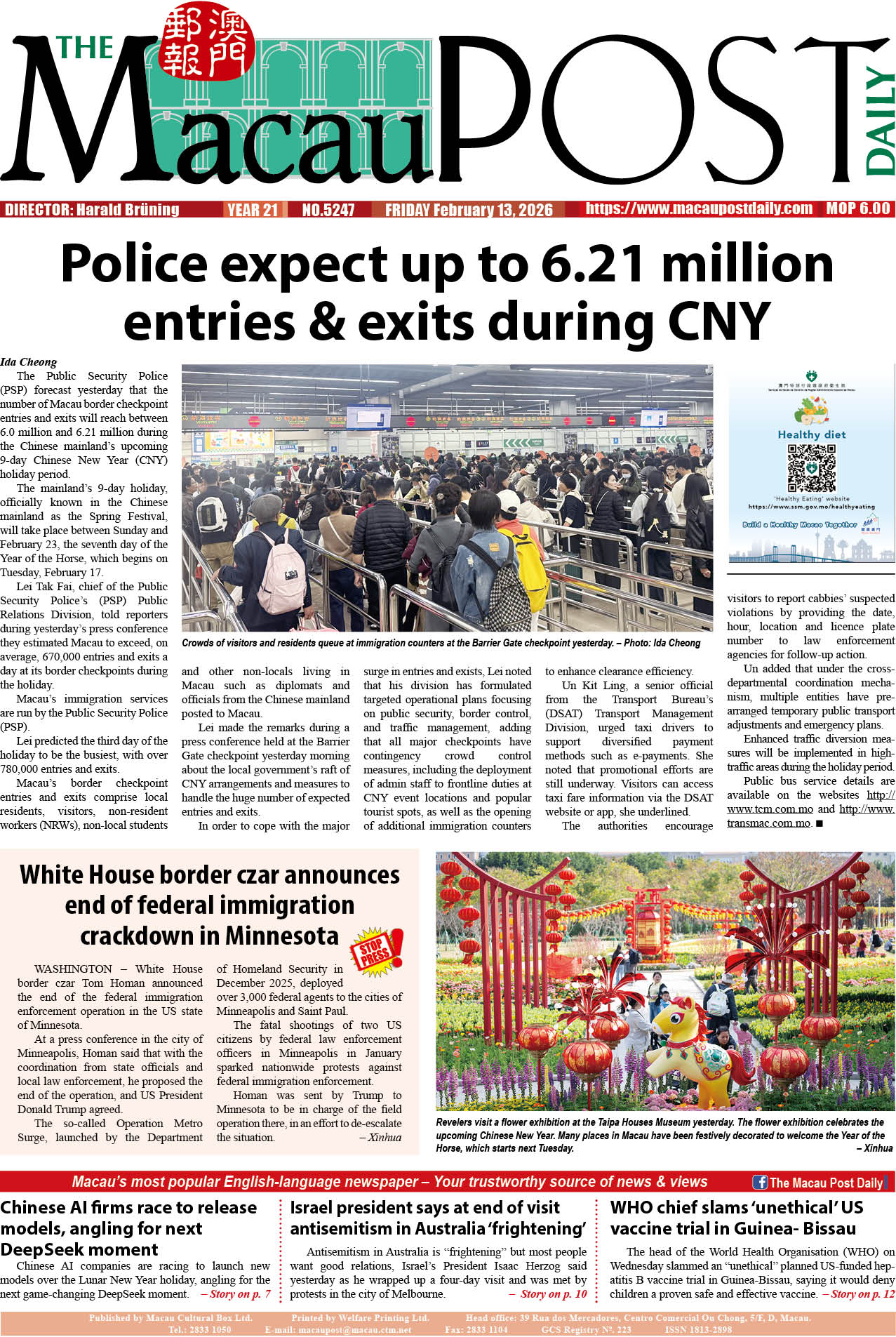When the central authorities revealed in Beijing last week that they were preparing to legislate on Hong Kong’s long-delayed national security issue, the special administrative region’s “pan-democrat” lawmaker Dennis Kwok Wing-hang claimed apocalyptically that “this is the end of Hong Kong.”
Well, I beg to differ. Quite the reverse, I hope that it will be a new beginning for Hong Kong so that after the national security law agenda is finally off the political agenda its officials and legislators can focus again on socio-economic issues in the wake of the economically devastating COVID-19 crisis.
Of course, Beijing’s move is not exactly a surprise. It was bound to happen. Article 23 of the Hong Kong Basic Law, which took effect 23 years ago, gave the Hong Kong Special Administrative Region (HKSAR) the constitutional duty to “enact laws on its own to prohibit any act of treason, secession, sedition, subversion against the Central People’s Government, or theft of state secrets, to prohibit political organisations or bodies from conducting political activities in the Region, and to prohibit political organization of bodies of the Region from establishing ties with foreign political organizations or bodies.”
Regrettably, the HKSAR failed to get its act together, and not only was the constitutional obligation never met but also grew into one of its most controversial issues.
In stark contrast, Macau lawmakers passed our city’s national security law without controversy in 2009, i.e. a decade after the establishment of the Macau Special Administrative Region (MSAR).
Nearly a quarter of a century after the founding of the HKSAR in 1997, Beijing obviously lost patience and decided to take direct action on the Article 23 front. Observers expect the National People’s Congress (NPC) to pass a resolution on the proposed national security legislation for Hong Kong later this week.
Legal experts have pointed out that all this can be legally done by resorting to Article 18 of the Hong Kong Basic Law which states that “the Standing Committee of the National People’s Congress may add to or delete from the list of laws in Annex III after consulting its Committee for the Basic Law of the Hong Kong Special Administrative Region and the government of the Region. Laws listed in Annex III to this Law shall be confined to those relating to defence and foreign affairs as well as other matters outside the limits of the autonomy of the Region and specific by this law.”
Article 23 can obviously be interpreted as referring to matters of defence and foreign affairs.
Ideally, Article 23 legislation would have been drafted by Hong Kong itself, but politics is seldom ideal.
Articles 18 and 23 of the Hong Kong and Macau basic laws are identical, which is certainly no coincidence, as I remember from the 1990s when I was covering the Macau Basic Law drafting process.
The problem of the long-delayed enactment of the national security law in Hong Kong is that our sister SAR has been affected by an identitarian movement that is noisily and partly even violently opposed to the fact that Hong Kong is an integral part of the People’s Republic of China (PRC), having resulted in the past few years in a string of riots and wanton acts of vandalism.
The crux is that Hong Kong’s so-called “pan-democratic” camp has failed to unequivocally distance itself from the political violence which would be unacceptable anywhere else in the world, in the West in particular. Deplorably, Hong Kong protesters opposed to Beijing’s move on the national security law damaged traffic lights and other public facilities once again yesterday, shouting hate-crime slogans such as that police officers’ families should die. Activist Joshua Wong Chi-fung told reporters on the sidelines of yesterday’s violent protests in Causeway Bay that he would continue to “fight” the central government.
Listening to Wong and his fellow activists I cannot help but remember Miguel de Cervantes’ 17th-century oeuvre about Don Quixote ‘s tilting at windmills, which I read as a student in the early 1970s, and the 1959 Cold War satirical film “The Mouse That Roared” starring Peter Sellers, which I saw in the late 1960s.
I suspect that many of the anti-Beijing activists in Hong Kong are being affected by a severe loss of touch with political reality. Do they really think that they can “fight” the central government and do they really believe that the West – the US and UK in particular – will rush to help them? Or are they politically really that naïve?
I hope that after the national security law gets finally enacted in Hong Kong (as well as the national anthem law) its residents – including government officials and lawmakers – can finally refocus their attention on bread-and-butter issues – well, in Asia it would possibly be more appropriate to call them “rice-and-tofu” issues – that are so important for the great majority of the “common” man and woman in Hong Kong as anywhere else.
Last but not least, I would like to point out that respected law expert Albert Chen Hung-yee of the University of Hong Kong (one of my two alma maters) said at the weekend he expected Macau’s version of the national security legislation to be studied in the drafting process for its Hong Kong counterpart, such as concerning the definition of secession and subversion. Chen also said he expected the central government to make reference to Hong Kong’s common law system as well as the shelved national security bill of 2003.
I do sincerely hope that Hong Kong’s national security law issue can be settled before long so that our neighbouring SAR can enjoy a new beginning – without riots and vandalism – as soon as possible. What is surely needed is a strong dose of realism.
– Harald Brüning








